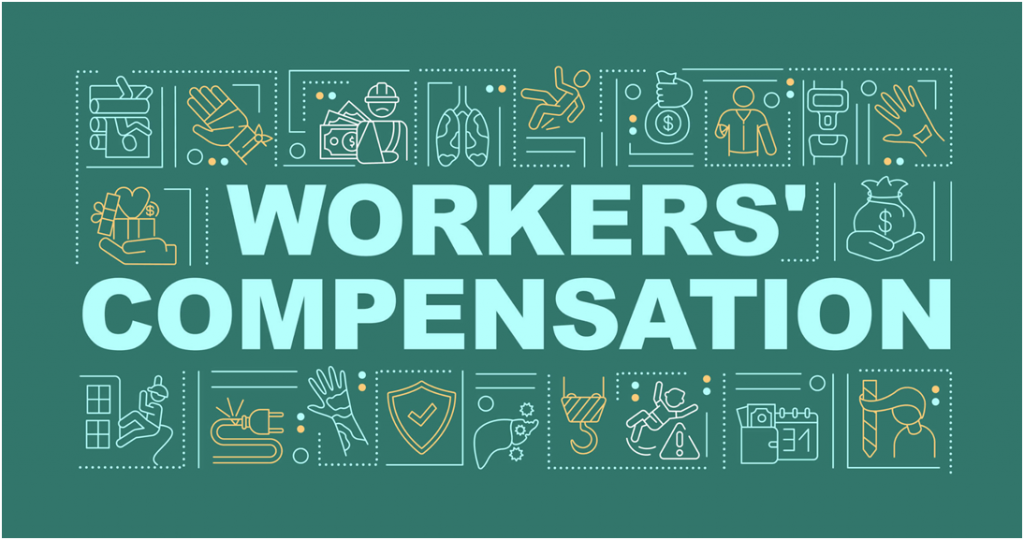
When employed by a company or organization, we expect to work in a safe environment without accidents or mishaps. Unfortunately, workplace injuries and illnesses do occur, often causing significant financial distress and physical pain. This is where workers’ compensation comes into play, providing employees with the financial and medical assistance they need to recover from their injuries and illnesses.
The workers’ compensation system exists to protect both employers and employees, ensuring that workers receive fair compensation for their injuries or illnesses while reducing the employer’s liability. This article will look closely at some things you need to know about workers’ compensation.
Employees That Suffer an Injury or Illness on the Job May Receive Workers’ Compensation
Employer’s responsibility towards their employees’ safety and well-being is vital not only for the employee’s health but also for the company’s compliance with labor laws. Workplace injuries are not uncommon, and they can happen in any industry, from construction sites to office cubicles.
Most employers have purchased workers’ compensation insurance to cover employees’ medical expenses, lost wages, and disability compensation in case of an injury or illness related to their work. Employers must report any injuries as soon as they occur to avoid any penalties.
Reporting also helps facilitate a prompt investigation into the matter, ensuring the worker receives compensation fairly and quickly. And seeking out the assistance of Shulman & Hill workers’ comp lawyers can ensure that all your rights are upheld, and you get fully compensated for your injuries.
However, it is essential to note that some injuries are not eligible for workers’ compensation coverage. Examples of such instances may include self-inflicted injuries or injuries resulting from voluntary off-duty activities. Employers must consider these limitations when filing a claim and avoid unnecessary costs and legal complications.
Lost Wages and Medical Bills Are Covered Under Workers’ Compensation
In times of injury or illness, employees often face the added burden of lost wages. To ease this burden, employers often provide benefits for temporary wage loss classifications during the healing period, known as temporary partial disability (TPD) or temporary total disability (TTD).
These benefits ensure that employees receive a portion of their income while they cannot work, allowing them to focus on their recovery without worrying about financial strain. To be eligible for temporary disability benefits, employees must have their condition properly assessed and documented by a licensed physician.
In addition to wage replacement, employees can expect coverage for all reasonable and necessary medical expenses, including any necessary rehabilitation or retraining to return to work. This comprehensive approach to employee care supports the employee’s recovery and financial stability and promotes a healthy and productive work environment.
Employees Cannot Sue Their Employer if a Work-Related Injury or Illness Occurs
Workers’ compensation is an essential trade-off for both employers and employees. This agreement ensures that employees receive crucial benefits such as wage replacement and medical coverage in the event of work-related injury or illness. In exchange for these benefits, employees are unable to sue their employers.
However, there are circumstances where an employee may be entitled to file a lawsuit against their employer. If the employer acted recklessly or intentionally harmed their employee, then the employee can seek legal action. It is essential to understand that workers’ compensation exists to protect both parties and provides an efficient way to deal with work-related injuries while preventing the need for costly and time-consuming lawsuits.
Employers must have workers’ compensation coverage, and employees have the right to file a claim for benefits if they experience an injury or illness while on the job.
Every Employee Doesn’t Always Have Workers’ Compensation
Workers’ compensation is an insurance program that seeks to protect employees who are injured or become sick while performing their job duties. Each state has its own laws and requirements regarding workers’ comp coverage.
In New York, most employers must carry it, including those who employ domestic and agricultural workers. Workers who suffered physical injuries or occupational diseases during the course of their employment are likely to receive benefits, while claims for mental illnesses or injuries are rarely compensable.
Work Injuries Can Be Avoided
To minimize the chances of work-related injuries and illnesses, employers must take proactive steps by implementing safety requirements and providing appropriate safety training courses to their staff. In some cases, they may even hire a risk manager to evaluate workplace environments to ensure safety standards are met.
However, despite all of these preventative measures, accidents can still occur. This is why employers must have a comprehensive workers’ compensation policy in place, which can provide essential financial protection in the event of an accident.
Without this policy, businesses could face financial ruin from having to pay out-of-pocket for medical expenses, lost wages, and legal fees. To avoid this, employers should work closely with their independent insurance agents to review the terms and conditions of their policies and ensure that they are adequately covered.
To Wrap Up
In conclusion, obtaining workers’ compensation is crucial to protecting employees in case of workplace accidents or injuries. Employers are legally obligated to carry workers’ compensation insurance, and employees have the right to file a claim if they suffer harm on the job.
The process for filing a workers’ compensation claim can be complex, but injured employees need to understand their rights and options.


